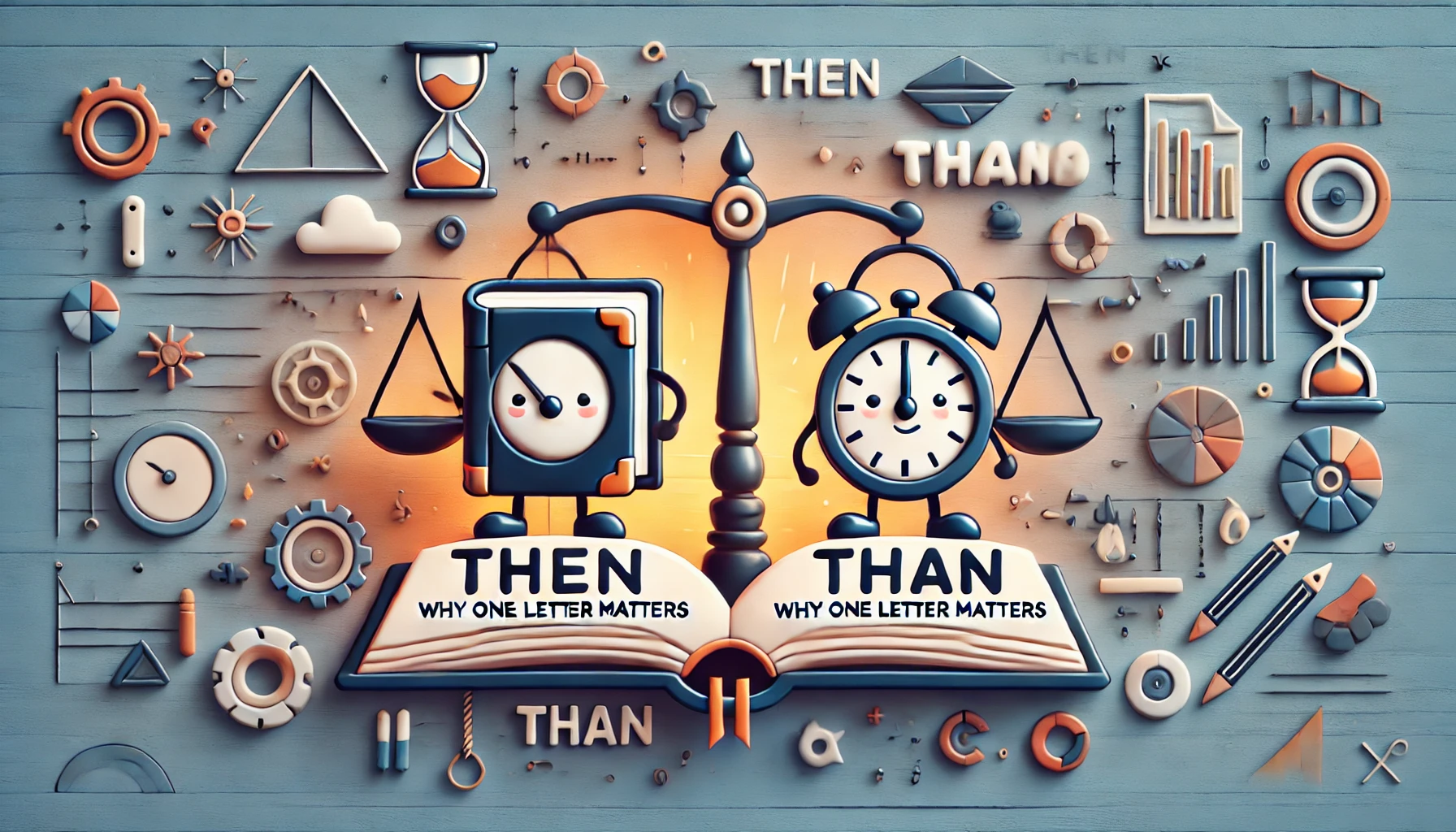
It’s easy to say that typos and spelling errors like then and than are not a big deal. Sometimes they aren’t, at least not in the sense that understanding is diminished.
Other times, however, one letter can make a big difference in the meaning of a sentence. Consider the following examples:
I’d rather walk then take the bus.
vs.
I’d rather walk than take the bus.
Because then is used to signal the passage of time, the first sentence means that the person wants first to walk followed by taking a bus.
Than is used to compare two things. In the second example, the person’s preference for walking is expressed in contrast to the other option, taking the bus.